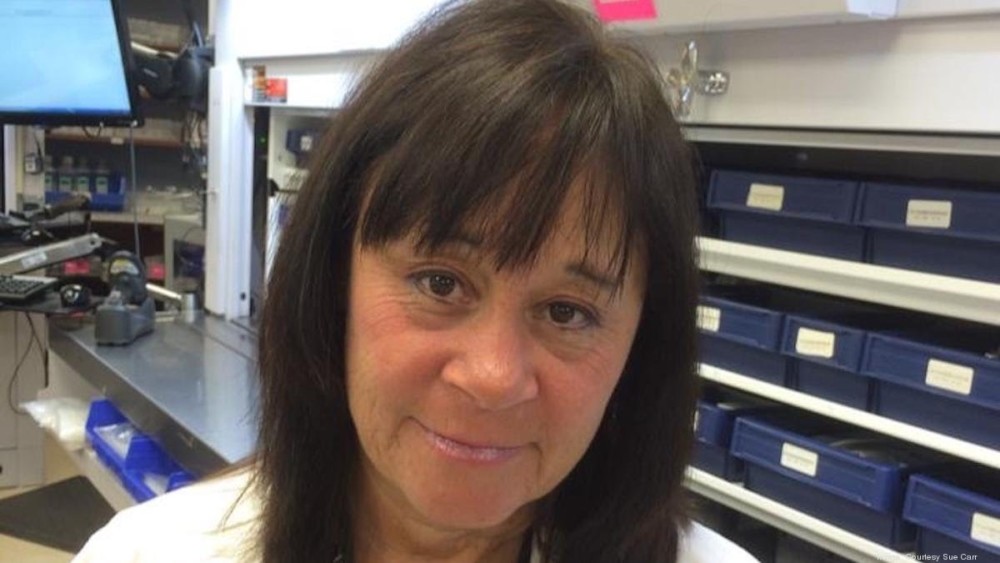By Erika Riley
The Frederick News-Post, Md.
WWR Article Summary (tl;dr) Five entrepreneurs at the “Frederick Innovative Technology Center Inc. (FITCI)” had the chance to pitch their ideas in front of potential advisers and investors at Reality Check — basically FITCI’s version of the competition TV series “Shark Tank.”
Frederick
As a pharmacist, Sue Carr was always bothered by the method used to remove liquid medication from the glass capsules they come in because it is lengthy, wasteful and often dangerous. So she came up with her own idea — the FROG Filter — which eliminates several of the steps.
Carr is now the CEO of CarrTech, a startup that is a client of Frederick Innovative Technology Center Inc. (FITCI). On Wednesday, she was one of five entrepreneurs who had the chance to pitch their ideas in front of potential advisers and investors at Reality Check — basically FITCI’s version of the competition TV series “Shark Tank.”
“I saw a problem in the hospital, and it kept bothering me and haunting me, and I vowed to make a product to solve it,” Carr said.
She doesn’t have a background in business, but FITCI has helped her every step of the way.
“I had a lot of help, and a lot of tutoring, and a lot of education through FITCI,” she said.
Kathie Callahan Brady, chief executive officer of FITCI, said that all of FITCI’s clients compete in order to pitch their ideas. These clients were the top five of the group.
“I always say, we don’t go to the Super Bowl with our B team,” Brady said. “Only with the A team.”
The “sharks” at Reality Check don’t actually offer capital on the spot. Rather, the event is more about practice and networking than anything else.
Olena Lar, who pitched her company Molecular Tools, said that getting the pitch right takes a lot of time.
“I’d say you have probably 15 pitches before you actually get it to a really good one, or maybe an almost good one,” Lar said.
It’s not knowing what you want to say that’s the challenge, Lar said. She works for about 10 hours a day on her company; she knows her work like the back of her hand. But it’s condensing it into a five-minute talk for investors that’s the hard part.
“It takes time to assemble it in the right way, and … keep it to the minimum, so that it’s short but still you have everything you want to be there,” Lar said. “It’s very easy to write five pages, but to write one paragraph, it’s very difficult.”
Lar doesn’t have a background in business either. She has a doctorate in molecular genetics. Molecular Tools has created a new test for bilirubin, a naturally occurring pigment that can be an indicator of several different conditions, such as jaundice, a traumatic brain injury bleed or oxygen stress disorder.
Current tests for bilirubin are expensive, time-consuming and not very accurate, Lar said. Her test requires only one drop of blood — which helps when testing newborns for jaundice — and takes five to 10 minutes to complete.
“I think it was the right combination of time, idea and resources,” Lar said. “But for a long time, I knew I’d really like to do something on my own. To see the entire process, and to be in charge of everything.”
Other pitches included Pete Medd’s Mpower Education, an online workforce development platform that links chains such as MassageEnvy and Massage Heights to potential massage therapists. An online component and an in-person component will complete their certification.
Xiaonao Liu pitched her company NanoBioFab, which makes a wearable device that can monitor the level of ketones coming from the body. That data can tell the wearer about their metabolism and how to maximize it, in terms of exercise and diet.
Taka Amano pitched his American Shochu Co., which has been operating out of a FITCI lab since 2017. Shochu is a Japanese spirit that can be distilled from barley or sweet potatoes.
Amano lives in Silver Spring but chose FITCI because it had the lab space available. The Montgomery County tech incubator had closed right before Amano wanted to expand his business, and he couldn’t find much help in Baltimore.
“Frederick has a fantastic environment for breweries and distilleries. … I’m kind of the young guy on the block as far as distilleries go. And [other distillers] share information, they share knowledge,” Amano said.
Each pitch ended with what amount of funding they’re currently looking for, which ranged from $100,000 to $2.5 million.
The event is an opportunity for the startups to make invaluable connections, Brady said.
“What I always tell them is I can create the opportunity, they have to develop the relationship. So that’s what I’m doing here, is opening doors, identifying who’s in the room,” Brady said. “And then it’s up to them to go do what they need to do.”
___
Distributed by Tribune Content Agency, LLC.














































































































































































































































































































































































